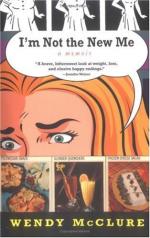The boys of old Phillips, with the down on their faces, and that eternal fire in their hearts which has burned upon the youth of all the ages when their country has commanded: “Die for me!” are drilling by moonlight.
The Academy Company is out in force, passing up and down the quiet, studious streets. The marching of their feet beats solemnly at the meeting of the paths where (like the gardens of the professors) the long walks of the Seminary lawns form the shape of a mighty cross.
“An infinite wrong deserves an infinite punishment—” The theologian’s voice falls solemnly. The girls turn their grave faces to the open windows. Silence helps the drum-beat, which lifts its cry to Heaven unimpeded; and the awful questions which it asks, what system of theology can answer?
* * * * *
Andover was no more loyal, probably, than other New England villages; but perhaps the presence of so many young men helped to make her seem so to those who passed the years from 1861 to 1865 upon the Hill.
Theology and church history and exegesis and sacred rhetoric retreated from the foreground of that scholastic drama. The great Presence that is called War swept up and filled the scene.
Gray-haired men went to their lecture-rooms with bowed heads, the morning papers shaking in their hands. The accuracy of the Hebrew verb did not matter so much as it did last term. The homiletic uses or abuses of an applied text, the soundness of the new school doctrine of free will, seemed less important to the universe than they were before the Flag went down on Sumter. Young eyes looked up at their instructors mistily, for the dawn of utter sacrifice was in them. He was only an Academy boy yesterday, or a theologue; unknown, unnoticed, saying his lesson in Xenophon, taking his notes on the Nicene Creed; blamed a little, possibly, by his teacher or by his professor, for inattention.
To-day he comes proudly to the desk. His step rings on the old, bare floors that he will never tread again. “Sir, my father gives his permission. I enlist at once.”
To-day he is a hero, and the hero’s light is glorious on his face. To-day he is the teacher, and the professor learns lessons in his turn now. The boy whom he has lectured and scolded towers above him suddenly, a sacred thing to see. The old man stands uncovered before his pupil as they clasp hands and part.
The drum calls on, and the boys drill bravely—no boys’ parade this, but awful earnest now. The ladies of Andover sew red braid upon blue flannel shirts, with which the Academy Company make simple uniform.
Then comes a morning when the professors cannot read the papers for the news they bring; but cover streaming eyes with trembling hands, and turn their faces. For the black day of the defeat at Bull Run has darkened the summer sky.




